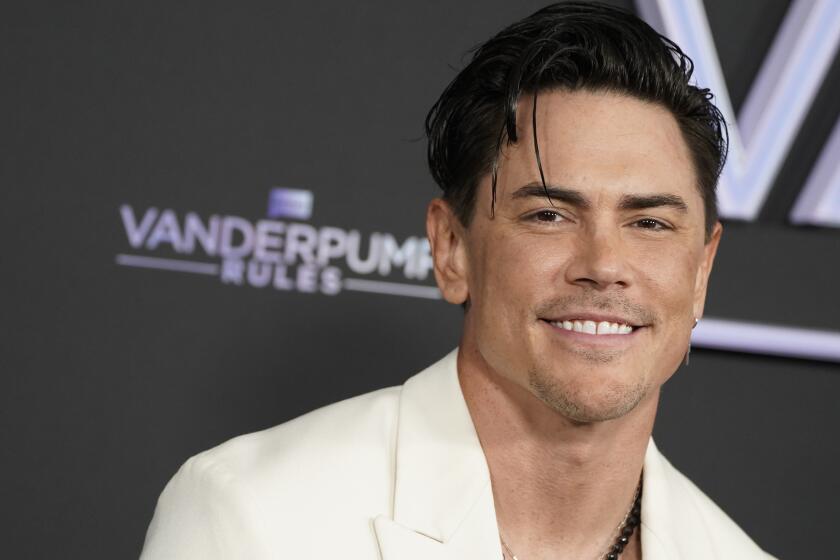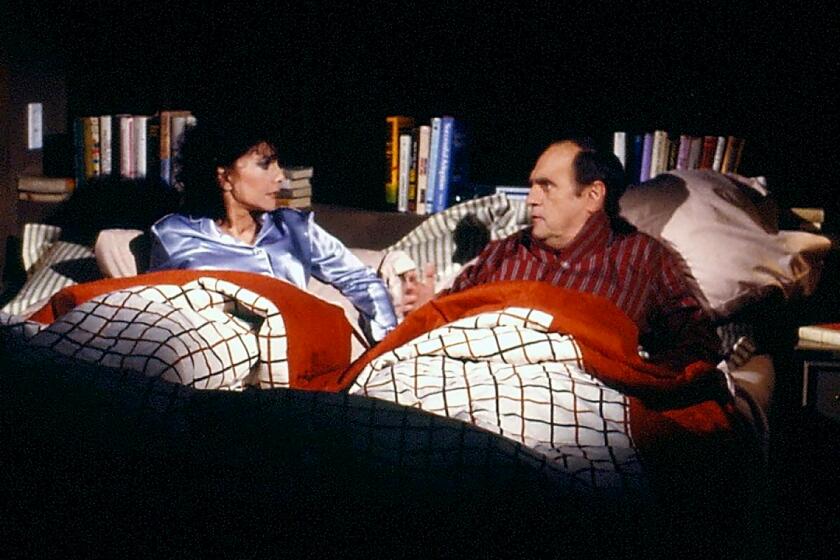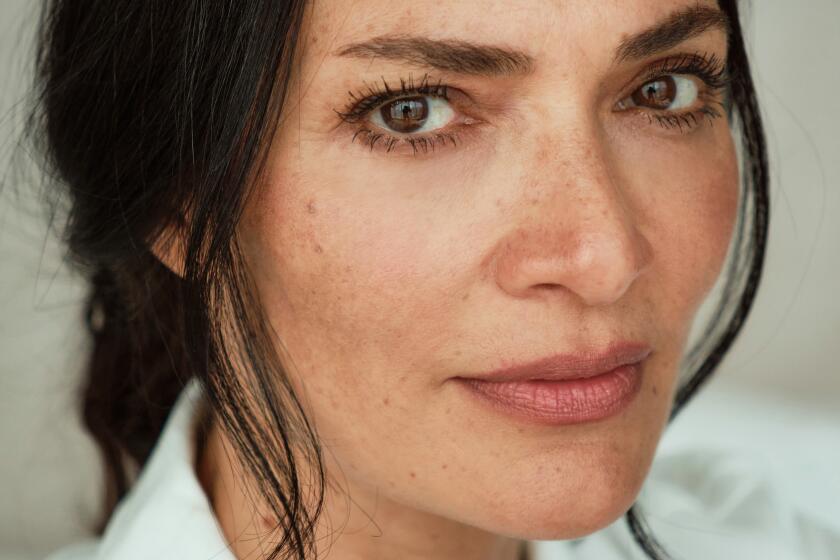LORNE MICHAELS: LIVE FROM NEW YORK--AGAIN
When NBC’s “Saturday Night Live” begins its 11th season Nov. 9, it will be a strikingly, wildly different show--or a comfortingly familiar one.
It all depends on how old you are.
NBC is snatching “SNL” from the youngish audience it appears to have been aimed at lately and returning it to the slightly older folks who made it a hit a decade ago.
At least, Lorne Michaels hopes that will happen.
Michaels, founding father of the seminal comedy show, is returning as its executive producer this season, replacing the successor to his successor, Dick Ebersol. And he fully expects to lure familiar faces to both sides of the television screen.
He’s talking to most of the former Not-Ready-for-Prime-Time-Players--Chevy Chase, Bill Murray and Dan Aykroyd among them--about returning to NBC’s legendary Studio 8-H in guest-spot capacities.
Joining them on stage will be a new cast that Michaels and associates currently are scouting for here, as well as in Toronto and Chicago. (Michaels said that last season’s stars, Billy Crystal and Martin Short, had decided not to return to the show even before he signed on.)
There will be familiar names backstage, too. Tom Davis and Al Franken, former “SNL” funnymen, will serve as line producers; Howard Shore will again be music director; and Eugene Lee is returning as the show’s designer.
Beyond that, Michaels declined to discuss specifics--such as when and how much of Chase et al. will we see?
“I can’t answer that,” he said the other day, perched in one of the many Art Deco chairs in his Broadway Video complex overlooking Times Square. “Between now and Nov. 8, I would like it to be the Manhattan Project: Everybody knows they’re working on it and that it’s important, but nobody knows quite what it is.”
Michaels is a little more forthcoming about what he hopes to find on the home side of the screen.
“We always tended to go for the smart audience, and I think we’ll get them back because there are few other places for them to go,” he said. “ ‘Pee-Wee’s Big Adventure’ and the comedy that Cyndi Lauper does, I think, are different from what we’re going to do.”
Looking at Michaels, it would be difficult to believe otherwise. The former whiz kid of smart-aleck comedy is a kid no longer. Gone are the Early Beatles head of hair and boyish face frequently seen on screen in “SNL’s” initial years.
Instead, Michaels’ mostly white growth has receded into something approaching Mr. T’s hairdo. The face is a bit rounder, too, though healthy looking.
At 40, Michaels is the godfather of an entire school of American comedy, and he looks the role. Under his tutelage, Chase, Murray, Aykroyd and, to a lesser extent, Gilda Radner and Laraine Newman, plus the late John Belushi and even Steve Martin all were provided with springboards to mainstream movie making. Jane Curtin, another early “SNL” player, is now the star of CBS’ “Kate and Allie.”
Elsewhere on television, silly humor with a point of view became hot as “SNL” paved a path for everything from the NBC version of “SCTV” to HBO’s “Not Necessarily the News.”
Michaels, meanwhile, won three Emmys for “Saturday Night Live,” in addition to three others earned for specials by Lily Tomlin and Paul Simon.
Not surprisingly, the new “Saturday Night Live” will be falling back on some of its old inventions.
There will be heavy emphasis on ensemble playing, with all actors receiving equal pay. (They always did under Michaels, even after some became movie stars; that avoids what he believes were too many “one-person and two-person sketches” last year, forced by the star status of Crystal and Short.)
Also, hosting the show “will become more important again.”
Most significantly, “Saturday Night Live” will become more live .
“The illusion we created--which is true--is that from 11:30 when it starts till 1 o’clock this thing is happening in New York. As it got into more prerecorded tapes and got more into videos, it lost what is magic about it. I think ‘Saturday Night Live’ is about a contact with another group of humans coming through this tube.”
Michaels, while being interviewed, carefully measured his words to avoid taking a direct swipe at Ebersol’s handling of the show. But he could not conceal his belief that “SNL” has not remained faithful to his vision. “It became a television show,” he said. “There’s nothing wrong with it being a television show, but I think it was something more.”
He acknowledged that much of that change is inevitable when a counterculture show becomes established. “Yeah, I think that is a problem. But I think ‘Saturday Night Live’ should always be in opposition to prime time. I can’t sneak on the air this time but I can keep the quality up and I can make it stand for something.”
When he walked away from “SNL” in 1980, “I wanted to get as far from it as I could. I had done nothing but work for five years and I had neglected just living.”
He created Broadway Video, little by little building up a state-of-the-art and very fashionable electronic production facility in the legendary Brill Building. He also produced concerts for Neil Young and Simon & Garfunkel, went to Africa twice and got married.
More recently, he began co-writing the Orion Pictures film “The Three Amigos” along with Randy Newman and Steve Martin. The effort has approached the hands-on satisfaction of producing “SNL,” Michaels said. Still, he added, “the problem with the movie business for me is, it’s a show that doesn’t have to go on.”
When he did try to re-create some of the “SNL” experience, it resulted in “The New Show,” a prime-time bomb that aired Friday evenings on NBC early in 1984. “The nice part about going back to ‘Saturday Night Live,’ ” he said, “is I don’t have to invent it again.”
Michaels leaned forward in his chair, the pedestrians and porno houses of Times Square forming a backdrop outside his office window. “The roots of ‘Saturday Night Live’ are in theater, and it combines what’s best about New York. The movies dominate in Los Angeles; what dominates here is theater and the information business. This is the knowledge capital. Those things should be reflected in the show.”
The complete guide to home viewing
Get Screen Gab for everything about the TV shows and streaming movies everyone’s talking about.
You may occasionally receive promotional content from the Los Angeles Times.



